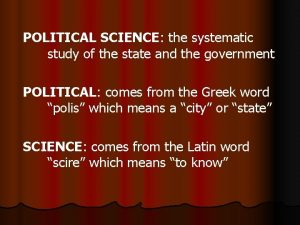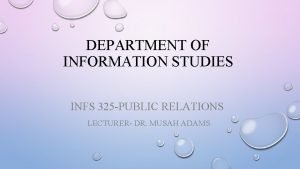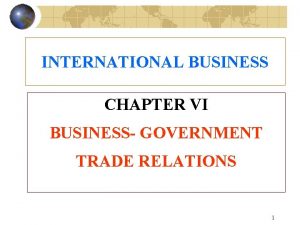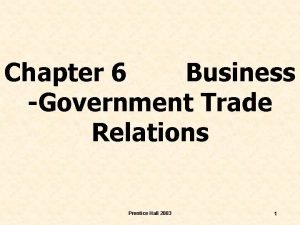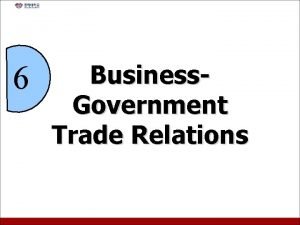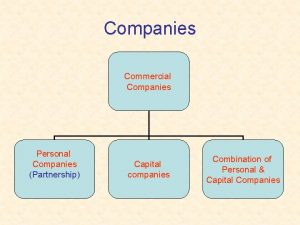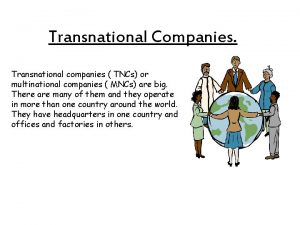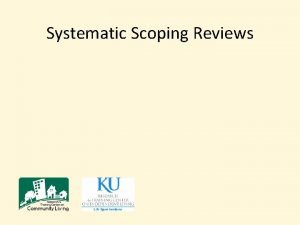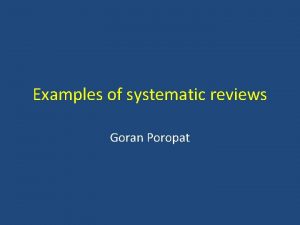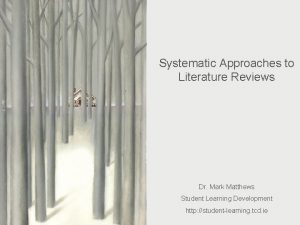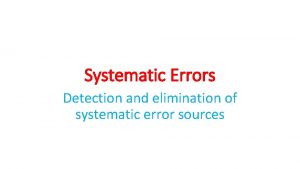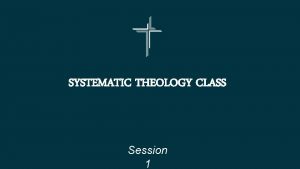GOVERNMENT RELATIONS Government relations for companies are systematic













- Slides: 13

GOVERNMENT RELATIONS Government relations for companies are systematic effort to influence the policies of government to help achieve particular objectives or protect particular interest in public that reflects well on company and the decision makers involved.

NEED FOR GOVERNMENT RELATIONS Impact on business operations Impact on functional environment Better understanding of Government policies Maintenance of trust and transparency

OBJECTIVES OF GOVERNMENT RELATIONS Enduring co-operation between business and governance. Synthesis of the interests of business and government to their common advantage. Working partnership and mutual cooperation between the two parties.

FACTORS AFFECTING GOVERNMENT RELATIONS MANTAINED BY ORGANISATIONS Degree of Functional freedom and liberalization Economy Government Policies Political party in power

PROCESS OF GOVERNMENT RELATIONS The Dynamic Model Research Action Plan / Objectives & Evaluation Program Planning Communication Tactics & Implementation

GOVERNMENT RELATIONS – A TWO WAY PROCESS Government Relations Maintained by the Government Maintained by the Organisation Conscious efforts, both by the government as well as the organization are required. In the absence of either, it is not possible to maintain healthy government relations.

PR GUIDELINES FOR BUSINESS, GOVERNMENT AND POLITICAL PARTIES Respecting the political liberties of employees Friendly relationships with national and state legislators and elected municipal officials, particularly in states where the company maintains and runs factories. Public stand on proposed measures which may affect business by Heads of corporations. Business should give voluntary service to government agencies where exigencies demand. Meaningful opposition that is constructive, factual, realistic and offers alternatives.

TOOLS AND TECHNIQUES Local, self government and community levels • (I. e. relations of corporations, associations, unions and NPOs with state and local self governments) • Interacting and maintaining good relations with Permanent legislative representatives of the area. • State or local trade associations represent smaller concerns to the concerned government representatives. State and Municipality level • Interaction with municipal agencies and officials. • Lobbying during legislation and policy making.

TOOLS AND TECHNIQUES Common to Central, State and local levels • Filing briefs and/or Public appearances. • Committee/Public hearings. • Formal dinners or informal luncheons and breakfasts. • Informal round table discussions. • Delegation visits. • Industrial plant tours. • Telephone calls, correspondence and telegrams. • Advertising and Publicity. • Booklets, folders, speeches, annual reports and company magazines.

TOOLS AND TECHNIQUES Some additional tools • Traditional tools - Press releases and media kits sent out to publicize the stand of the organizations. • Relatively new tools - Social media which provides a platform for two way communication and ensures feedback.

LOBBYING • 'Lobbying' is a form of advocacy with the intention of influencing decisions made by the government by individuals or more usually by Lobby groups. • It includes all attempts to influence legislators and officials, whether by other legislators, constituents, or organized groups. • A 'lobbyist' is a person who tries to influence legislation on behalf of a special interest or a member of a lobby. • It is looked upon by an average person as something mysterious, suspicious and obscure. They are called the “third house” and by less complementary names such as influence peddlers and fixers.

THE OUTCOMES OF GOVERNMENT RELATIONS FOR AN ORGANISATION GOOD GOVERNMENT RELATIONS -Helps in protecting the organizations interests. -Helps in having a voice in what legislation is enacted. -Play a part in determining govt. fiscal policies , taxation. BAD GOVERNMENT RELATIONS -Organizational goals cannot be achieved. -No influence on legislations that affect the organization. -The organization becomes a spectator, rather than a participant in forming of govt. policies

THE POSITIVE CHANGE Since the turn of the century there has been a steadily increasing interaction of government and business organizations. GOVERNMENT The Government has started recognizing the importance of business organizations to the economy of the state, and have started interacting with them. BUSINESS ORG. There is an increasing recognition on the part of business executives of the importance of developing an effective partnership with government.
 Insidan region jh
Insidan region jh Government relations companies
Government relations companies Politics
Politics Employee relations in public relations
Employee relations in public relations Business government trade relations
Business government trade relations Business government trade relations
Business government trade relations Business government trade relations
Business government trade relations Toppslätskivling dos
Toppslätskivling dos Redogör för vad psykologi är
Redogör för vad psykologi är En lathund för arbete med kontinuitetshantering
En lathund för arbete med kontinuitetshantering Bra mat för unga idrottare
Bra mat för unga idrottare Ramsa geometriska former
Ramsa geometriska former Ledarskapsteorier
Ledarskapsteorier Svenskt ramverk för digital samverkan
Svenskt ramverk för digital samverkan


